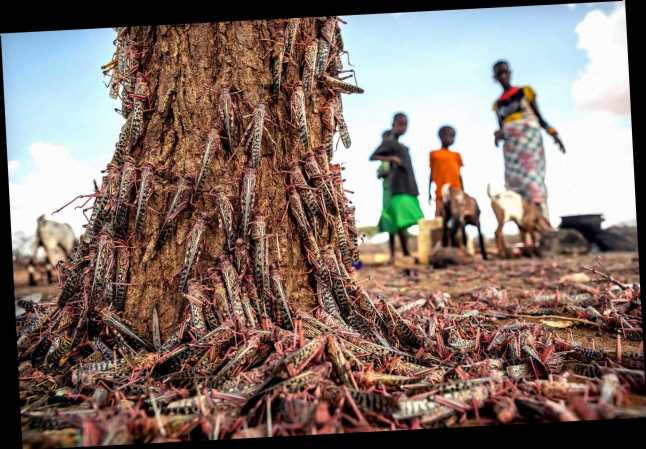Mother Nature is not happy.
As humans around the globe battle the coronavirus, the Earth is being wracked by volcanic eruptions, plagues of locusts and storms.
Early Saturday, Indonesia’s Anak Krakatau volcano — the mountain’s last great eruption in December 2018 triggered a deadly tsunami — spewed a 500-foot column of ash and kept the lava flowing for hours.
The volcano’s forerunner, the Krakatoa volcano, erupted in 1883, killing more than 36,000 people in one of the most devastating natural disasters in history, and causing a period of global cooling, according to the Jakarta Post.
On the other side of the world, in Iceland, volcanic activity is escalating in a region that has been relatively calm for 800 years, according to the Guardian.
Scientists are warning that all the rumbling could cause disruption for centuries to come.
“It seems that after being relatively inactive for many centuries, this region is waking up,” Dave McGarvie, a volcanologist at Lancaster University in the UK, told the newspaper.
In Africa, an outbreak of locusts is overwhelming several countries — Kenya, Somalia, South Sudan, Uganda and the Congo — because the coronavirus pandemic has slowed the delivery of pesticides that can kill the crop-eating insects.
In the US, storms have wreaked havoc. A fierce snowstorm knocked out power for hundreds of thousands of households in Maine early Friday, and a tornado ripped through Arkansas a week ago. Four major hurricanes have been predicted to devastate the Atlantic and the Caribbean this year.
As if that isn’t bad enough, a new case of the Ebola virus has surfaced in the Democratic Republic of Congo, which thought it had eradicated the deadly disease after a two-year battle.
“Unfortunately, this means the government of DRC will not be able to declare an end to the Ebola outbreak on Monday, as hoped,” Tedros Adhanom Ghebreyesus, the World Health Organization’s top leader, told UPI.
Source: Read Full Article
